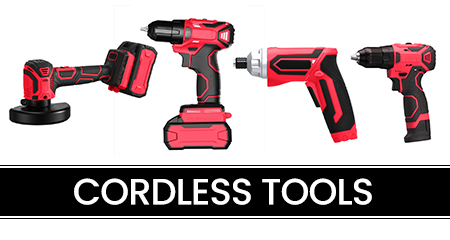 English
English 
 English
English 
Learn about the features, performance and project suitability of 12-volt and 18-volt tools to help you make the right choice for your specific needs.
The choice between 12-volt and 18-volt tools is a pivotal decision for both professionals and DIY enthusiasts. Each voltage option comes with its own set of advantages and considerations. This article aims to provide insights into the features, performance, and project suitability of 12-volt and 18-volt tools, assisting you in making the right choice for your specific needs.

12-Volt Tools: Ideal for light to moderate tasks, 12-volt tools are compact and lightweight. They offer sufficient power for tasks like assembling furniture, installing fixtures, and handling smaller DIY projects.
18-Volt Tools: Geared towards heavier applications, 18-volt tools provide more power and are suitable for tasks like drilling into masonry, cutting through hardwoods, and handling larger construction projects.
12-Volt Tools: Known for their portability, 12-volt tools are compact and lightweight, making them easy to maneuver in tight spaces. They are the go-to choice for tasks that require increased mobility.
18-Volt Tools: While slightly heavier, 18-volt tools still offer a good balance between power and portability. They are versatile enough for various applications without sacrificing too much in terms of weight.
12-Volt Tools: Generally, 12-volt tools have a longer runtime on a single battery charge due to their lower power consumption. This can be advantageous for tasks that require prolonged tool use.
18-Volt Tools: While 18-volt tools may have a shorter runtime compared to their 12-volt counterparts, their higher power output allows for more demanding tasks.
12-Volt Tools: Suitable for a wide range of everyday tasks, 12-volt tools are versatile and often come in compact, multi-tool designs. They are an excellent choice for users who prioritize flexibility.
18-Volt Tools: With a broader range of tool options available, 18-volt tools cater to both common and heavy-duty applications. This makes them suitable for users who require a comprehensive set of tools for various projects.
12-Volt Tools: Generally, 12-volt tools are more budget-friendly, making them an attractive option for DIY enthusiasts or those with cost considerations.
18-Volt Tools: While typically more expensive, 18-volt tools offer a higher level of performance and versatility, justifying the investment for professionals or those tackling larger projects.
In the 12-volt vs. 18-volt tools debate, the right choice depends on the nature of your projects and your specific requirements. Consider the balance between power, portability, and versatility to make an informed decision that aligns with your preferences. Whether you opt for the compact convenience of 12 volts or the robust power of 18 volts, choosing the right tools ensures efficiency and success in your endeavors.
Hebei Sinotools Industrial Co., LTD.
Copyright © Sinotools Industrial All rights reserved. Technical Support:REANOD